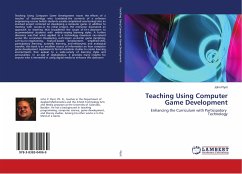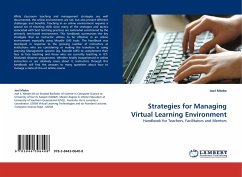
Teaching Using Computer Game Development
Enhancing the Curriculum with Participatory Technology
Versandkostenfrei!
Versandfertig in 6-10 Tagen
39,99 €
inkl. MwSt.

PAYBACK Punkte
20 °P sammeln!
Teaching Using Computer Game Development traces the efforts of a teacher of technology who translated the contents of a software engineering course (which students usually complained was boring) into an involved project centered on developing a computer game. In addition to meeting with success in his initial project, the instructor discovered an approach to teaching that broadened the scope of the classroom to accommodated students with widely varying learning styles. A further discovery was that what applied to a technology classroom can extend across the curriculum. Developing such topics a...
Teaching Using Computer Game Development traces the efforts of a teacher of technology who translated the contents of a software engineering course (which students usually complained was boring) into an involved project centered on developing a computer game. In addition to meeting with success in his initial project, the instructor discovered an approach to teaching that broadened the scope of the classroom to accommodated students with widely varying learning styles. A further discovery was that what applied to a technology classroom can extend across the curriculum. Developing such topics as starter game morphing, software engineering, feature-based development, simplified UML, participatory learning, autotelic learning, and metonymic and analogical transfer, this book is an excellent source of information on how computer game development supplements formal academic studies to create learning environments that appeal to a wide variety of learning styles and personalities. In an age of digitalization, it provides many insights for anyone who is interested in using digital media to enhance the classroom












